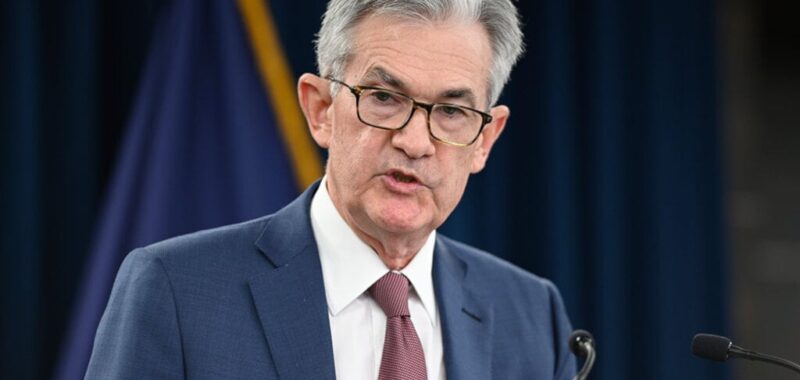On the campaign trail, former United States President Donald Trump says crypto holders should be concerned about the Orwellian implications of a digital dollar. But behind the scenes, the Federal Reserve is not moving forward on developing a central bank digital currency (CBDC), according to Fed Chair Jerome Powell.
“In terms of a CBDC, there’s really nothing new going on,” Powell said during Wednesday’s Federal Open Markets Committee meeting. “There’s not much going on at all.”
The creation of a digital dollar has served as a rallying cry for conservatives including Republican Florida Governor Ron DeSantis and Sen. Ted Cruz (R-TX). Before ending his presidential bid, DeSantis warned that the technology resembling a government-controlled stablecoin could be used to surveil Americans or curtail purchases of firearms and gasoline.
In Nashville at the Bitcoin 2024 conference, Trump told Bitcoiners last week that a CBDC would not happen under his administration. He vowed to “immediately order the Treasury Department and other federal agencies to cease and desist all steps necessary” associated with its creation.
“There will never be a CBDC while I’m president of the United States,” Trump said. “Forget it.”
Trump cultivated an anti-CBDC stance even before strongly shifting into a “crypto president.” At a January rally in New Hampshire, Trump warned that the technology would grant the government sweeping control over Americans’ finances—to the point where the government would be able to “take your money, and you wouldn’t even know it was gone.”
During Wednesday’s press conference, Powell said that the central bank is currently “keeping up with developments” in the space like “pretty much every major central bank in the world,” adding that it’s “work that we need to be doing, which could be very beneficial down the road.”
Across the world, 73 countries are currently researching or developing a CBDC, while 36 are in the process of piloting one, according to international affairs organization Atlantic Council. Jamaica, The Bahamas, and Nigeria are the only countries that have launched one so far.
“Some of them are actually seriously looking at implementing a CBDC,” Powell said of countries dabbling in the technology. “We’re really not.”
While the independent presidential candidate Robert F. Kennedy Jr. skewered CBDCs before shedding his Democratic affiliation, a negative stance is somewhat rare among liberal lawmakers. When Republican Rep. Tom Emmer’s (R-MN) CBDC Anti-Surveillance State Act reached the floor of the U.S. House in May, three Democrats joined with 213 Republicans in passing the legislation.
Emmer’s bill prevents the Fed from issuing a CBDC without congressional approval. Or, as Emmer wrote after the bill’s passing, it “prevents unelected bureaucrats from issuing a financial surveillance tool to fundamentally undermine our American values.”
After the Senate received Emmer’s bill, it was referred to the chamber’s Committee on Banking, Housing, and Urban Affairs.
Powell reaffirmed Wednesday that issuing a CBDC for everyday purchases would require Congressional approval. A “wholesale” CBDC that banks could use for settlements with each other is “less clear,” Powell had said last year.
“We would need to go to Congress, and we have no plan to do that,” Powell said of a CBDC for consumer payments Wednesday. “No one here has decided that we think it’s a good idea yet.”
Edited by Ryan Ozawa

